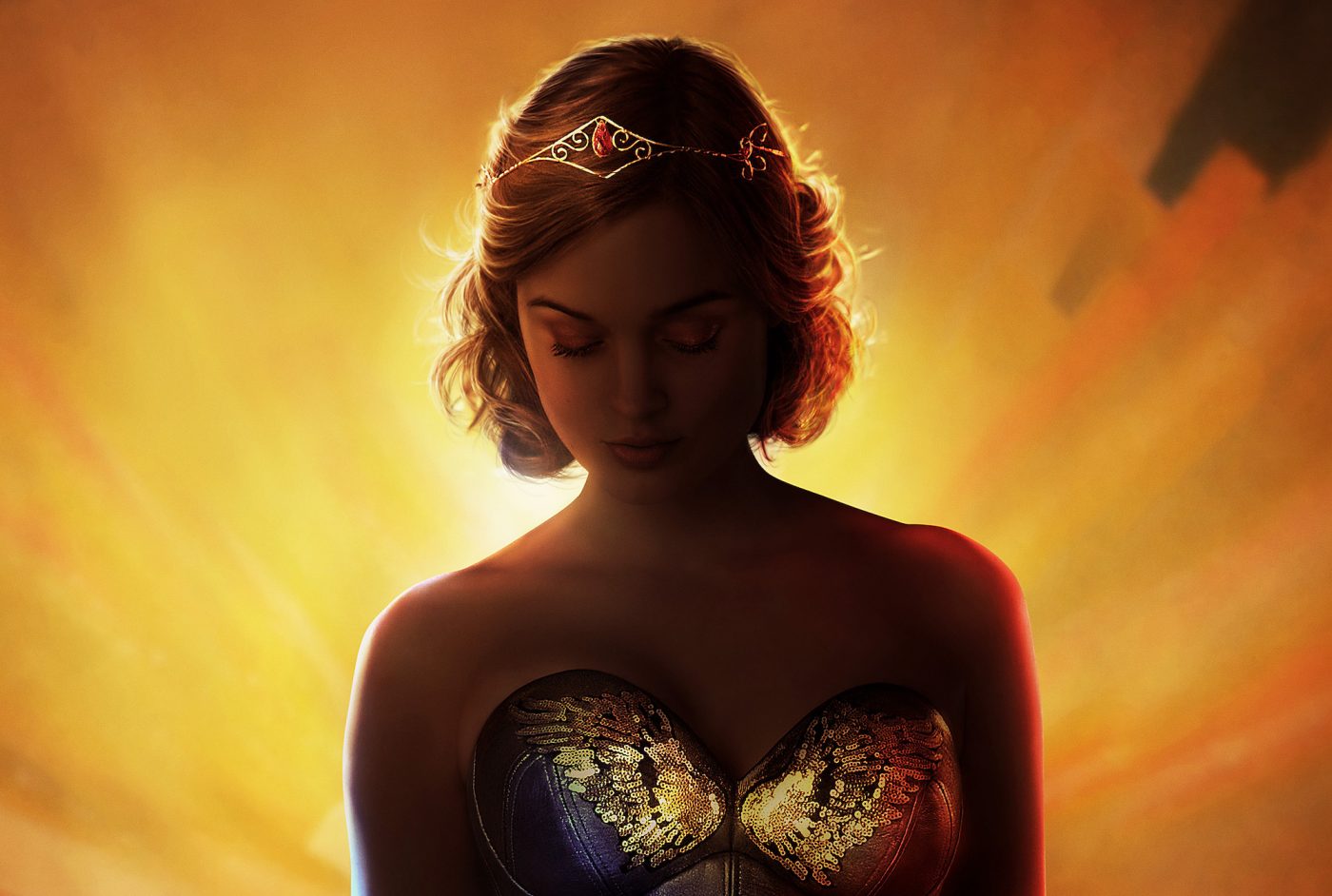Professor Marston and the Wonder Women is, to borrow from classic psychoanalytic terminology, two movies (both somewhat fictionalized) in one — a manifest, or ostensive, account of the creation of the Wonder Woman comic book character; and a latent, or underlying, exploration of alternative sexuality. Spanning a 20-year period from the mid-1920s to the mid-’40s, the film details how William Moulton Marston, a professor of psychology at Tufts University (changed to Radcliffe in the story), came to invent the character of Wonder Woman and, in the process, smash traditional female roles in popular comic book mythos.
But that’s just the tip of the iceberg. Marston is interested in exploring — and upending — more than just traditional gender roles; he wants to understand what drives sexual arousal in people, particularly women. The fact that he is clearly titillated by his subject matter means only that his … er, heart is in his work. Oh, and along the way, he and his wife Elizabeth, also a research psychologist, manage to “perfect” his invention of the polygraph, or lie detector.

After the Marstons recruit a fetching young student as a research assistant, the threesome begin to push the boundaries of sexual behavior. Marston says he wants to understand how dominance and submission underlie nearly all human negotiations, but he’s constantly blurring, and often crossing, the line between detached scientific data-gathering and uninhibited sexuality. The film is at times highly erotic without ever becoming prurient. It imposes no judgments on its main characters for their unusual lifestyle.
Many of the sequences are told in flashback as Marston addresses an inquisitional board alleging that his Wonder Woman comics are indecent and therefore unsuitable for children, thus we get to see how much Wonder Woman is based on incidents from his own relationships. Marston writes his comic books under the pseudonym Charles Moulton, prompting his interviewer to ask whether it is he, more than Wonder Woman, who feels the need for a secret identity.
So what are we to make of all this? Elizabeth repeatedly tries to reject his pleas for unconventional sexual relationships, including ones involving more than two partners. Time and again she refuses, is seduced by his insistence and her own lustful longings, then tries to end it when negative consequences befall them. Is she the voice of reason and morality, drowned out by the siren call of Marston the reprobate? Or is she a tortured soul, one leg caught in the trap of repressive prudishness from which her more enlightened husband is trying to free her?

And what of Olive, the comely, eager young student whose feminist mother, sister to Planned Parenthood founder Margaret Sanger, dumped her in a convent to be raised by nuns? Is she a victim of an older man’s lust, drawn in by his relative position of power and seductive manner? If so, why does her own lust fasten, at least at first, upon Elizabeth? The film makes short shrift of the imbalance of power between a university professor and his student, except for when the academic couple lose their positions. Yet this is an area that could have been explored further, especially given Marston’s own fascination with dominance and submission, and the transfer of power implicit therein.
In the end, Wonder Woman became a projection for Marston’s views of women, and the psychological and erotic power implicit in upending traditional gender roles, right down to her golden lasso and dominatrix boots. That she may have inspired generations of young girls to break the bonds of the patriarchy and discover their power to create their own destinies, as the film implies, may have been Marston’s rationalization for indulging his erotic fantasies in the pages of a comic book.

But does it really matter? We all project our own hopes, fears, and aspirations onto the icons of popular culture. The difference is having a hero — or heroine — who gives us permission to challenge the status quo instead of merely reinforcing it.
Join the AIPT Patreon
Want to take our relationship to the next level? Become a patron today to gain access to exclusive perks, such as:
- ❌ Remove all ads on the website
- 💬 Join our Discord community, where we chat about the latest news and releases from everything we cover on AIPT
- 📗 Access to our monthly book club
- 📦 Get a physical trade paperback shipped to you every month
- 💥 And more!














You must be logged in to post a comment.